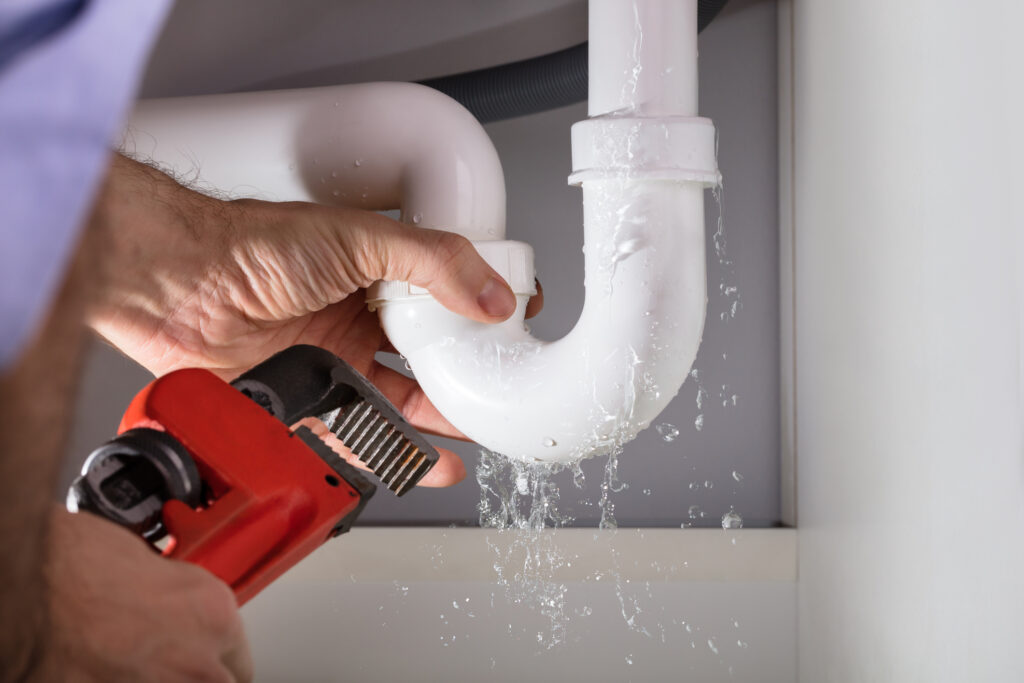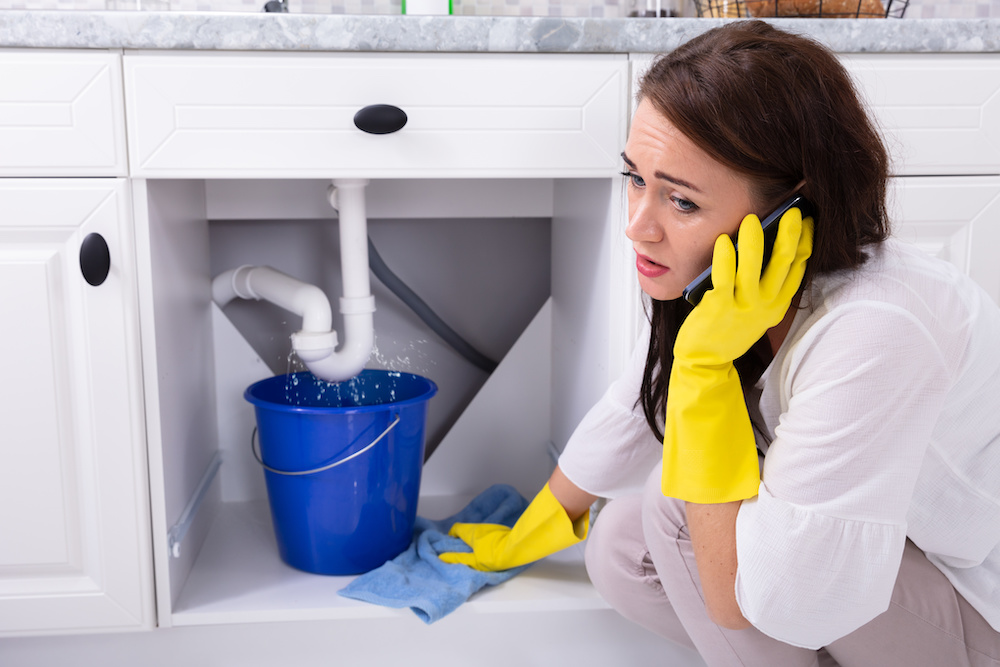Fast Fixes for Plumbing Emergencies: What to Do Until Support Arrives
Fast Fixes for Plumbing Emergencies: What to Do Until Support Arrives
Blog Article
They are making a few good points related to What to Do During a Plumbing Emergency in general in this content directly below.

Pipes emergency situations can strike at any time, causing tension and possible damages to your home. Whether it's a ruptured pipeline, a clogged drainpipe, or a dripping tap, knowing how to manage the situation until a professional plumbing shows up can save you from additional problems. This post supplies necessary emergency situation pipes ideas to assist you alleviate damage and restore control during a plumbing crisis.
Turn Off the Water Supply
The first step in any plumbing emergency situation is to shut down the water system. For local problems, such as a leaking faucet or toilet, turn off the shutoff near the component. When it comes to a major leakage or burst pipe, find your home's main water shut-off shutoff and transform it off promptly. Understanding the place of these valves ahead of time can conserve useful time during an emergency.
Shut down Your Hot Water Heater
In specific emergencies, such as a burst pipe, it's a good idea to shut off your hot water heater. This stops overheating or damage to the device when water quits streaming. Turn off the power supply to the hot water heater (electrical or gas) and let it cool to stay clear of prospective hazards.
Momentarily Quit a Burst Pipeline
A ruptured pipe can bring about substantial water damage in mins. To alleviate the issue:
Call a professional plumbing professional promptly to address the trouble permanently.
Have an Emergency Situation Plumbing Package
Prepare a fundamental pipes emergency situation kit to manage minor problems effectively. Your package should consist of:
Having these devices on hand can make a considerable distinction in your capability to take care of emergencies.
Unclog Drains Securely.
A clogged drainpipe can be a frustrating and untidy concern. Right here's just how to tackle it:.
If these approaches don't work, prevent making use of excessive force, as it may aggravate the obstruction.
Take Care Of Overflowing Toilets.
An overflowing toilet can trigger prompt disorder. Below's what you need to do:.
Address Small Leaks with Temporary Fixes.
Small leaks can quickly become significant problems if left unattended. Utilize these short-term repairs up until expert assistance shows up:.
While these repairs aren't long-term, they can assist reduce water loss and damage.
Handle Frozen Piping Meticulously.
In cooler environments, frozen pipes are a common emergency situation. If you presume an icy pipe:.
Know When to Call a Specialist.
While quick fixes can assist temporarily, particular pipes issues call for instant professional focus. Call a plumbing professional if:.
Promptly speaking to an expert makes certain the problem is resolved properly and prevents additional complications.
Stop Further Damages.
Taking quick activity to minimize damages can save you time and money in the future. Right here's just how:.
Verdict.
Plumbing emergencies can be frustrating, but with the ideal knowledge and tools, you can handle the scenario efficiently up until aid arrives. By shutting off the water, addressing little leakages, and making use of short-term repairs, you can lessen damages and keep your home safe. Keep in mind, these ideas are temporary services; constantly get in touch with a licensed plumbing to manage the origin of the trouble. Preparation and quick reasoning are your best allies in any type of plumbing emergency.
8 Helpful Tips for Managing Plumbing Emergencies at Home
If your plumbing system hasn’t failed once, wait for it because almost everyone has a story to tell. Sometimes, it could be simple emergencies such as a leaking pipe, a blocked cistern, or even a big burst pipe. In situations like this, you need to have some handy tips to save you some money and from possible damages.
Take care of minor issues early.
Sometimes, you could have avoided an emergency by taking proactive measures while it was still early. Some major plumbing emergencies can be a result of an ignored minor issue. We recommend that you have items like plumbing tapes and other related items. A plumbing tape can allow you to manage minor leaks before the plumber arrives.
Cut off the water supply.
This tip is essential in almost any type of leakage problem. For problems like minor leakages in the toilet or kitchen, turn off the supply that takes water to the affected pipes. If the leakage is a major pipe, you must shut off the supply valve to the entire building. This will help you avoid flooding your home and neighbors if you share a flat.
Know your plumbing system
Folks typically move into a new apartment without understanding the water supply around the building. This can prove disastrous if a water emergency arises and the plumber is far away. The previous tip will prove useless if you don’t practice this one. More importantly, know where your water shut-off valve is located – you’ll need that knowledge to prevent potential home floods.
Have some common handy tools
There are lots of plumbing emergencies that you can handle without hiring a plumber. That’s why you must keep some tools available always. Some tools that you can use to fix simple plumbing emergencies easily include plumbing tapes, screwdrivers, thread seal tapes, plungers, pliers, tape measures, and rubber gloves.
Insulate your pipes from cold
You’ll save yourself from many plumbing expenses if you protect your water pipes from the cold. This is because of the harmful effects that cold weather can have on your pipes. During winter, your pipes can burst from being overly expected to freezing temperatures. So, make sure insulators are there to keep the pipes working correctly.
Avoid practices that will clog your toilet.
Many people indulge in practices that can damage the plumbing system of the entire building. One of these is when they use their toilet to dispose-off garbage. They flush all kinds of things, such as paper towels, bandages, hairs, female sanitary products, etc., down the toilet. This will block your toilet in the long run, incurring unnecessary expenditures. Dump such waste in the trash instead.
Check your dials regularly.
Sometimes, there could be leakages in your home without noticing them in time. So, constantly monitor your water meter dial. If the dial is reading when there is nobody using water, this is an indicator that there is leaking. Check for leaks immediately. Call a plumber as soon as possible if you can’t find any.
https://www.constructionplacements.com/8-helpful-tips-for-managing-plumbing-emergencies-at-home/

I am just very fascinated with Plumbing Emergencies: Tips on What To Do Before and I hope you appreciated our article. Kindly take the time to promote this blog posting if you enjoyed reading it. Thanks a bunch for being here. Come back soon.
See Availability Report this page